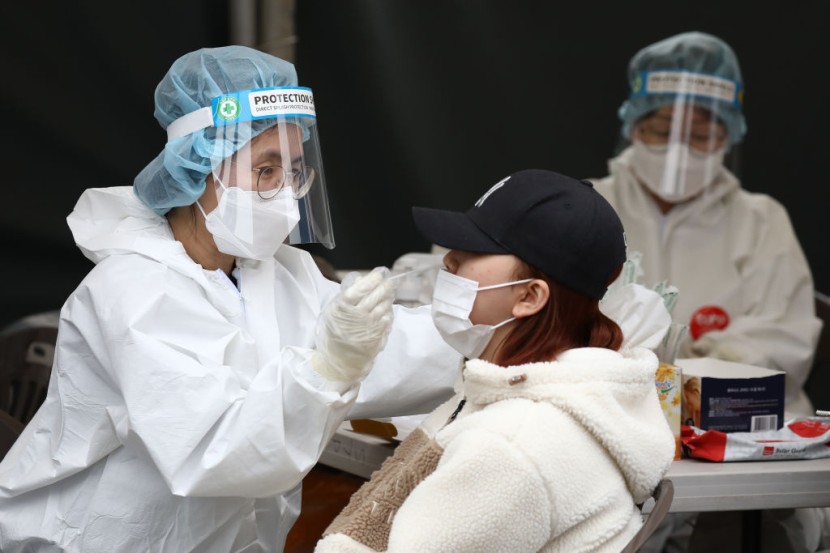
COVID-19 infections surge in South Korea due to the highly contagious Omicron variant as the country is about to end its pandemic restrictions.
According to authorities on Thursday, new daily COVID-19 infections were recorded at 621,328 and 429 fatalities. The government earlier said that it expected the wave to increase the daily cases to around 400,000.
In the past seven days, as per the Associated Press report, South Korea had recorded an average of roughly 337,000 new cases daily, including 362,283 on Tuesday, an increase of more than 80 percent from rates seen in mid-January, when Omicron arose as the dominant variant.
The total number of cases in the country has already surpassed 7.2 million, with 6.4 million recorded since February.
Health officials say more than 62% of South Korean got booster shots. The high vaccination rates helped the country maintain lower levels of deaths due to the virus in comparison to the numbers recorded in the US and Europe, where COVID-19 surged significantly due to Omicron.
The Korea Disease Control and Prevention Agency (KDCA) reported that South Korea has 17.6 COVID-19 fatalities per 100,000 people, in comparison with 285.5 deaths in the US and 237.5 in Britain.
Pandemic Restrictions Will Be Eased
However, the South Korean government seems to be firm with its plan to lift the majority of pandemic restrictions such as social distancing, which the public supports.
It has already halted the requirement of vaccine passes and moved the curfew on restaurants to 11 pm. Social distancing rules in bars, eateries, movie theaters may be eased in the following days to mitigate the impact of the pandemic on the economy.
South Korea, per Al Jazeera, has reduced test, track, tracing, and quarantine strategies that significantly helped manage previous outbreaks.
The government is also planning to remove the quarantine mandate for travelers entering the country abroad.
Though, the requirement to wear masks in public spaces is still in effect. The KDCA reported that more than 1.6 million infected individuals with mild or moderate symptoms are isolated at home to ensure enough hospital space.
Moreover, South Korea is set to launch a vaccine drive for children between 5 to 11 years old this March.
Read Also : Japan Begins Cleanup After Massive 7.4 Earthquake That Killed 4 Near Site of 2011 Nuclear Disaster
Better Situation Ahead
One government study on 141,000 Omicron infections in South Korea over the past year indicated no fatalities among persons below 60 years old who got a booster dose, according to health ministry official Son Young-rae, The Guardian reported. He added that there is a possibility that COVID-19 could be treated like seasonal flu.
In a media briefing, Son said that the latest surge "could be the last major crisis" in South Korea's COVID situation, and the country would get "nearer to normal lives" once they get through it.
According to a poll published this week by Seoul National University's graduate school of public health, the percentage of South Koreans anxious about COVID-19 having a major health impact has declined to around 48%, the lowest level since the surveys commenced in January 2020.
However, health ministry official Park Hyang noted that they anticipate the number of serious COVID-19 cases to increase to around 2,000. "We are preparing our medical response for that," he said.
Related Article : Good News! New Zealand Opening Borders to Tourists After COVID-19 Lockdown, When Can US Travelers Visit?








